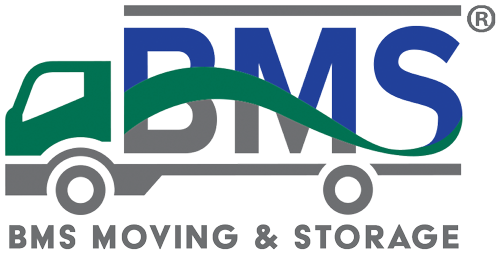
Moving from the West Coast to the East Coast means trading Pacific sunsets for Atlantic sunrises, adjusting to seasons that actually change, and discovering that people really do say “wicked” unironically. This cross-country relocation involves more than just hiring a moving truck. You’re changing time zones, climates, and quite possibly your entire pace of life.
Understanding the Distance and Logistics
A coast-to-coast move typically spans 2,500 to 3,100 miles, depending on your specific route. Los Angeles to New York clocks in around 2,800 miles. San Francisco to Boston stretches about 3,100 miles. Seattle to Miami? That’s a marathon 3,300-mile journey.
Professional moving companies usually quote 7-14 days for delivery on these routes. Several factors affect this timeline:
- Seasonal demand and truck availability
- Number of stops for other customers’ deliveries
- Weather conditions along the route
- Specific delivery window you’ve selected
- Whether you’ve paid for expedited service
The journey crosses multiple mountain ranges, deserts, and plains. Your belongings will experience temperature swings from below freezing to over 100 degrees, depending on the season and route. This matters for sensitive items like electronics, musical instruments, and wine collections.
Major Cost Considerations
Several variables impact your final price when it comes to a West-to-East coast move:
Base moving costs include:
- Labor for loading and unloading
- Transportation and fuel surcharges
- Basic liability coverage
- Standard delivery window
Additional services that add up:
- Packing and unpacking services
- Storage if delivery dates don’t align
- Extra insurance for valuable items
- Expedited delivery options
- Vehicle shipping for multiple cars
Get quotes from at least three reputable companies. Watch for suspiciously low estimates that might indicate a bait-and-switch operation. BMS Moving & Storage provides transparent pricing that reflects the true scope of cross-country relocations.
Climate and Lifestyle Adjustments
The East Coast delivers weather that West Coasters often find shocking. Humidity hits different when you’re used to dry heat. Snow isn’t just something you drive to see in the mountains anymore. You’ll need a completely new wardrobe and mindset.
Prepare for seasonal realities:
- Winter requires serious coats, not just hoodies
- Summer humidity makes 80 degrees feel like 95
- Fall foliage is gorgeous but means raking leaves
- Spring brings allergies you never knew you had
- Heating bills replace air conditioning as the major expense
East Coast cities pack more history and density into smaller spaces. Parking costs money almost everywhere. Public transportation actually works in major cities. Your car might become optional rather than essential, especially in New York, Boston, or DC.
Housing Differences to Expect
East Coast housing stock looks nothing like West Coast construction. Many homes predate your grandparents. Radiator heat, window AC units, and basements are standard. Square footage costs significantly more, especially near major cities.
Common East Coast housing features:
- Older homes with quirky layouts
- Oil or radiator heating systems
- Basements that might flood
- No central air conditioning
- Street parking instead of driveways
- HOA fees even for condos without amenities
Research property taxes before choosing your destination. New Jersey and Connecticut residents pay some of the highest property taxes nationally. Factor these ongoing costs into your housing budget beyond the purchase price or rent.
Timing Your Cross-Country Move
Seasonal timing affects both cost and comfort. Summer moves cost more but avoid winter weather delays. Fall offers moderate temperatures and stunning scenery along your route. Spring brings unpredictable weather but lower prices. Winter saves money if you can handle potential storms.
Consider these timing factors:
- School calendars if moving with children
- Job start dates and flexibility
- Lease endings to avoid double payments
- Peak moving season (May through September) premiums
- Weather patterns along your entire route
- Holiday blackout dates when movers don’t operate
Book your moving company at least 8-12 weeks in advance for coast-to-coast moves. Popular summer dates fill up by March. Last-minute cross-country moves cost significantly more and limit your options.
Preparing for Moving Day
Three months before moving, start this process:
- Research moving companies specializing in long-distance moves
- Declutter aggressively since you’re paying by weight
- Gather important documents for personal transport
- Start using frozen and perishable food
- Book vehicle shipping if needed
- Research your new state’s requirements for driver’s licenses
Six weeks before moving:
- Confirm moving dates and services
- Purchase moving insurance
- Arrange time off work for moving week
- Schedule utility disconnections and connections
- Change address with USPS and important accounts
- Reserve temporary housing if needed
Two weeks before moving:
- Pack essential items for the drive or flight
- Confirm delivery address and contact information
- Prepare appliances for moving
- Back up computer files
- Gather medical and school records
- Withdraw cash for travel expenses
The Journey Itself
If driving alongside your move, plan your route carefully. Interstate 80 offers the most direct path but closes during winter storms. Interstate 40 provides a southern alternative with better winter weather. Interstate 10 hugs the southern border for the warmest option.
Budget for these road trip expenses:
- Hotels for 4-5 nights minimum
- Meals for multiple days
- Gas for 2,500+ miles
- Emergency car repairs
- Entertainment during long stretches
- Tolls, especially approaching East Coast cities
Flying instead? Book pets in advance and prepare for baggage fees. Ship your car early to ensure it arrives when you do. Pack enough clothes and essentials for two weeks in case delivery delays occur.
Settling Into East Coast Life
Give yourself adjustment time. The pace feels different, whether faster in NYC or surprisingly slower in Southern cities. People communicate more directly. Historical sites you learned about in school become weekend destinations.
First month priorities:
- Register your vehicle within 30 days
- Update your driver’s license
- Find new doctors and transfer medical records
- Register to vote in your new state
- Explore public transportation options
- Learn local customs and expectations
Join local groups to build community quickly. East Coast cities have strong neighborhood identities. Your block might have its own Facebook group, yearly festivals, and unwritten parking rules everyone somehow knows.
Managing the Transition
Culture shock is real, even within the same country. West Coast casual might read as unprofessional on the East Coast. Business hours end earlier. Stores close on Sundays in some areas. Pizza becomes a food group in the Northeast.
Stay flexible about these differences:
- Social interactions tend toward briefer exchanges
- Seasons dictate social calendars more dramatically
- Sports loyalties run deeper and louder
- Happy hour starts at 4 PM, not 6 PM
- Brunch is a competitive sport requiring reservations
Connect with other West Coast transplants through social media groups. They’ll share recommendations for finding decent Mexican food, beaches worth visiting, and how to survive your first nor’easter.
Making Your Cross-Country Move Successful
A successful coast-to-coast move requires planning, patience, and professional help. Choose experienced long-distance movers like BMS Moving & Storage who understand the unique challenges of cross-country relocations. We’ve moved thousands of families from the West Coast to their new East Coast homes.
Document everything during your move. Photograph valuable items before packing. Keep receipts for tax deductions if moving for work. Track delivery promises in writing. Quality moving companies stand behind their commitments and timelines.
Moving across the country opens new chapters in life. The East Coast offers incredible opportunities, from world-class museums to four legitimate seasons. Your West Coast roots will serve you well, bringing fresh perspectives to established co



